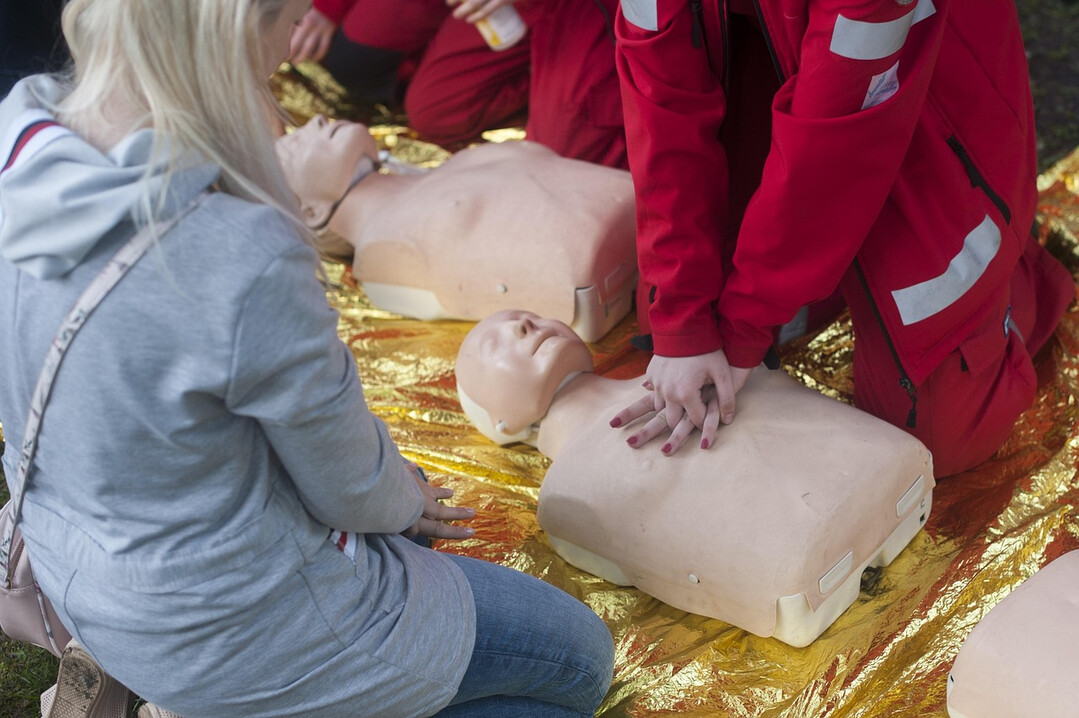
In 2024, Christina Fores, a volunteer at a church in the Philippines, was required to undergo cardiopulmonary resuscitation (CPR) training as part of the church's policy. At first, she thought it was excessive for her role of looking after children, but as she went through the training, she realized how quickly an emergency can happen. She came to understand the importance of securing the "golden hour" until rescuers arrive in the event of unpredictable accidents like choking or fainting.
According to an April 2025 report from the Philippine Statistics Authority, heart disease remains the leading cause of death in the Philippines, accounting for 85,868 deaths in 2024, or 19.4% of all deaths. This situation highlights the importance of national preparedness for emergencies. In particular, traffic congestion and limited access to emergency services can be fatal for heart attack patients. CPR is an essential skill that can save lives in such difficult environments.
The Importance of CPR: Why Should We Learn CPR?
The heart is like the engine of the human body. The moment this engine stops, i.e., a heart attack occurs, blood circulation ceases, and oxygen supply to the brain and other major organs is cut off. Brain damage can begin within 4 to 6 minutes after a heart attack, and the survival rate drops sharply as time passes.
CPR is a critical first-aid measure that increases the chances of survival by circulating blood to the heart and brain until rescuers arrive. Dr. Don Robespierre Reyes, president of the Philippine Heart Association (PHA), encourages public participation in CPR training, emphasizing, "You don't have to be a doctor to be a hero."
The reason many people are unable to act in an emergency is a lack of confidence. Fears such as "What if I make a mistake?" or "I might cause more harm" can make people hesitate. However, experts agree that "it is better to do something than to do nothing." In fact, in December 2024, a 16-year-old boy, JC Sumbard, became a hero by using the CPR knowledge he learned in school to save a 64-year-old man who had collapsed on the street. Without his quick action, a precious life might have been lost.
The Philippine Government's Efforts: Declaring 'National CPR Day' and Expanding Education
Recognizing the importance of CPR education, Philippine President Ferdinand Marcos Jr. declared July 17 as 'National CPR Day' on March 27, 2024. The purpose is to strengthen public health awareness and readiness to respond to various emergencies, including heart attacks and drowning accidents. The Department of Health (DOH) is the lead agency for 'National CPR Day,' responsible for planning and implementing various programs to popularize CPR.
The DOH provides a simple guideline called S.A.G.I.P. to help the public learn CPR easily.
S (Survey the scene): Survey the scene and the situation.
A (Assess the victim): Assess the victim's condition.
G (Get help): Get help and call 911 or other local emergency numbers.
I (Initiate chest compressions): Initiate chest compressions.
P (Place Automated External Defibrillator (AED) pads): Place automated external defibrillator (AED) pads (if available).
An automated external defibrillator (AED) is a portable medical device that analyzes the heart's rhythm and delivers an electric shock to restore a normal heartbeat. Recently, they have become more common in public places, and using one in conjunction with CPR can significantly increase survival rates.
Improving Access to CPR Education: An Opportunity for Anyone to Be a Hero
The Philippine Red Cross regularly offers BLS (Basic Life Support) and CPR training, and the Philippine Heart Association (PHA) is also committed to public education through various campaigns, including 'National CPR Day.' Recently, there has been an increase in free CPR workshops offered in collaboration with health centers, hospitals, and non-profit organizations. As access to CPR education improves, it is expected that more Filipinos will gain the ability to save lives.
CPR is about fostering the courage and responsibility to willingly lend a hand to someone in an emergency. Your touch can make someone's heart beat again. CPR training is not a choice, but an essential survival skill for everyone. Learning this skill is the most certain way to make our society's safety net even more robust.
[Copyright (c) Global Economic Times. All Rights Reserved.]






























